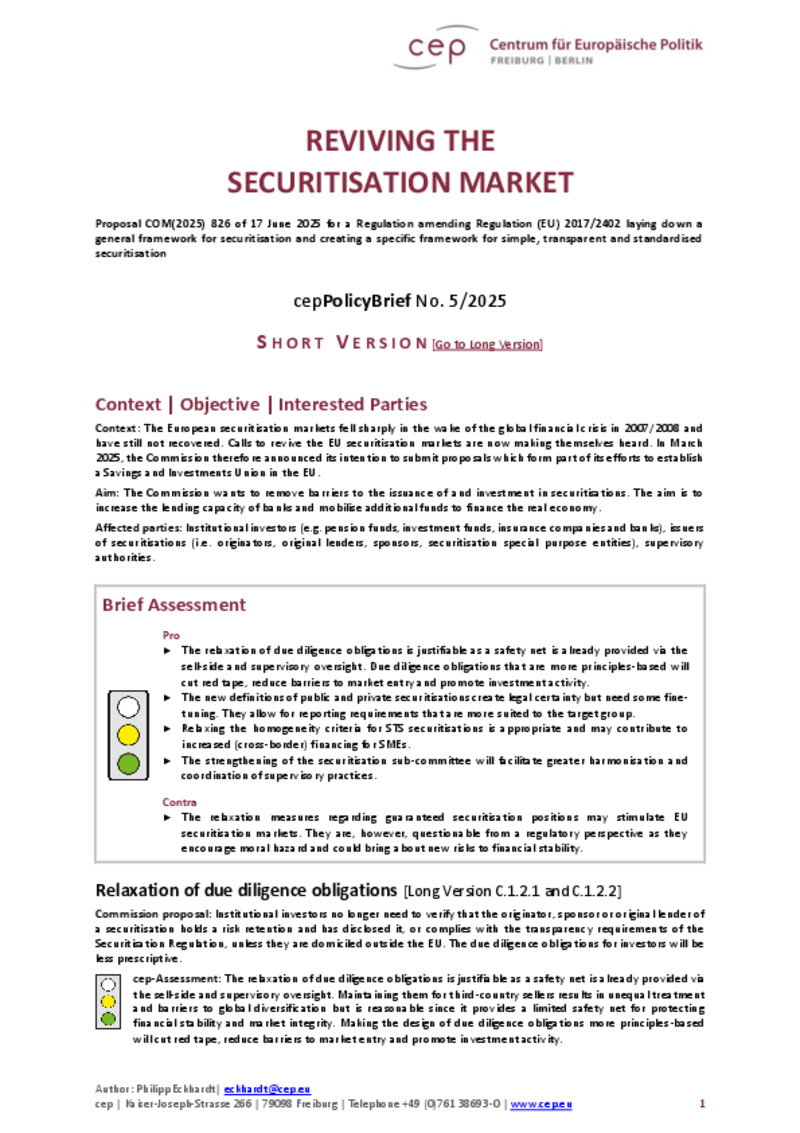
Financial Markets
Reviving the Securitisation Markets
cepPolicyBrief
Banks should be incentivized to grant more loans and stimulate additional investment in the real economy. "Securitisation is fundamentally a useful economic instrument. However, its potential has been far from fully exploited in the EU in recent years. With the revision of the EU Securitisation Regulation, the Commission is providing an important impetus for the revival of securitisation markets," says financial market expert Philipp Eckhardt, who has assessed the Commission's reform plans in detail.
The Commission is focusing on making things easier for both issuers of securitisations and institutional investors on the demand side. The latter should benefit from, for example, less stringent due diligence requirements. According to Eckhardt, these relaxations are "justifiable" because "there is already a double safety net in place in the form of the seller and the supervisory authority." The due diligence requirements are also to be less detailed. "This can help reduce administrative burdens, lower barriers to market entry and stimulate investment," said Eckhardt.
Eckhardt also supports the Commission's plan to create clear definitions of public and private securitisations. This will not only provide greater legal certainty but also lay the foundation for reporting requirements that are tailored to the target audience. However, Eckhardt warns: "The proposed definitions still need to be fine-tuned in order to actually achieve their objective."
In future, there are to be simplifications for securitisation positions guaranteed by multilateral development banks. "These can be an effective lever for reviving the securitisation markets. However, they carry the risk of creating false incentives and weakening the personal responsibility of institutional investors." The Commission's efforts to encourage insurers to play a more active role in the markets for "simple, transparent and standardised" securitisation are also not entirely welcome. This is because they could distort competition and pose risks to financial stability.




